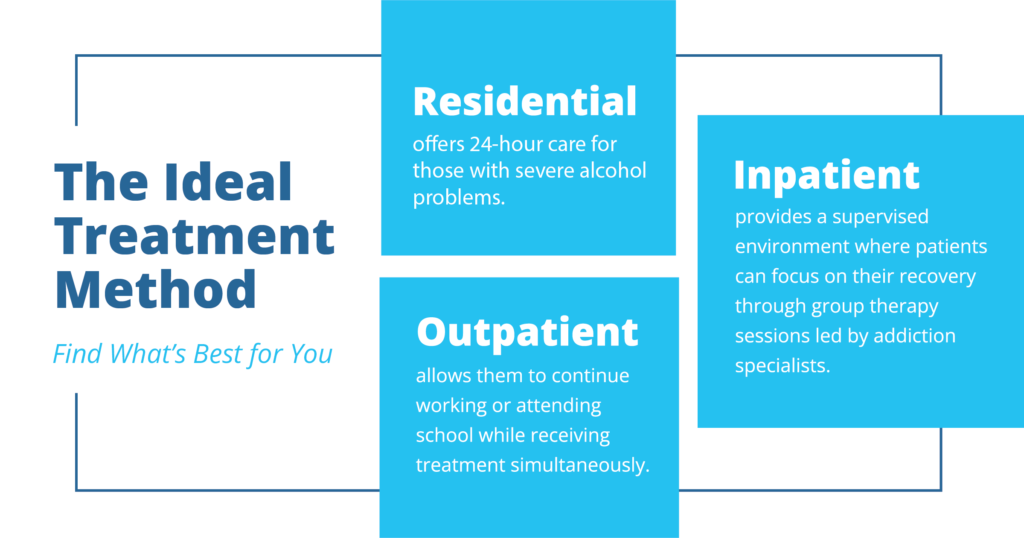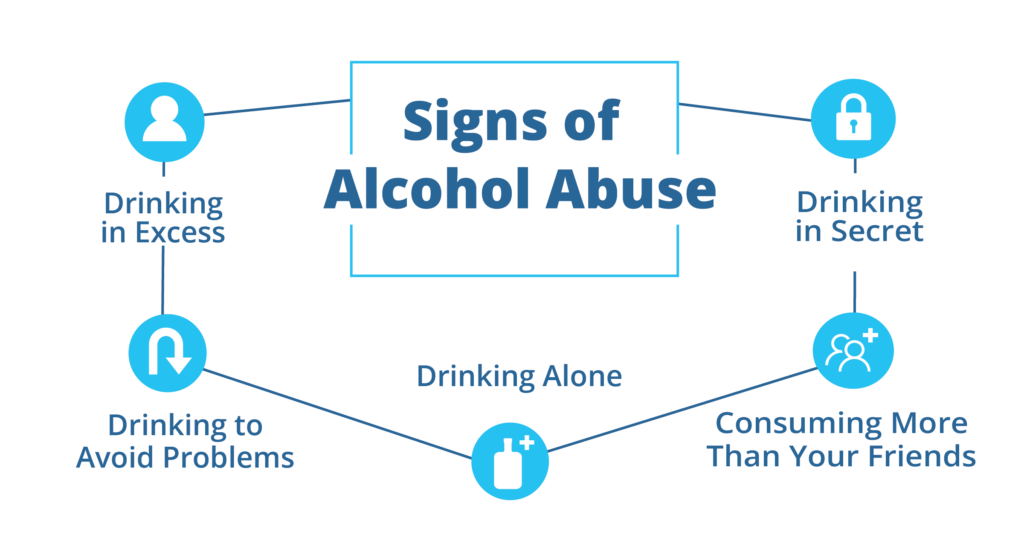
If you think you have an alcohol abuse problem, you might be wondering what to do next. You’re not alone in your struggle. Getting help for a drinking problem is just a phone call away.
When Is It Time for Treatment?
Many signs can indicate when it’s time for treatment. They include:
- Drinking more than you planned to drink, or more than your friends or family
- Drinking because of problems at home or work, or mood problems such as depression and anxiety
- Using alcohol to cope with stress and anxiety (more than five drinks in one sitting)
Signs of an Alcohol Problem
- Drinking more than you used to.
- Consuming more than your friends.
- Drinking alone.
- Drinking in secret.
- Drinking to avoid problems and feel better about yourself (e.g., drinking after work, drinking when you’re upset).
If you notice these signs, there’s no need to panic or feel like a failure—you may not be to be an alcoholic! You may just have a problem with alcohol use disorder (AUD).
Types of Treatment
Alcohol abuse is a severe and progressive condition. Treatment is available to help those who suffer from it, but many people are reluctant to seek help. There are several types of alcohol abuse treatment options available, including:
- Outpatient treatments offer structured support for individuals who want to change their drinking habits. It allows them to continue working or attending school while receiving treatment simultaneously.
- Residential treatment offers 24-hour care for those with severe alcohol problems which require intensive detoxification and extended rehabilitation services during recovery.
- Inpatient treatment provides a supervised environment where patients can focus on their recovery through group therapy sessions led by addiction specialists that cover topics such as coping skills training, self-esteem building exercises, relapse prevention techniques, and other relevant topics related to overcoming addiction successfully.
Behavioral Treatments
Behavioral treatments for alcohol abuse fall under two categories: individual counseling and group counseling. Individual therapy is usually conducted by a mental health professional such as a psychologist or psychiatrist and can help people with alcohol problems to
- understand their drinking behavior
- learn to change their behavior
- learn how to cope with stress
- learn how to set goals
Medications
Several medications can help people with alcohol dependence.
Medications may be used alone or in combination with behavioral therapies and other treatments for alcohol abuse. They can help reduce cravings and withdrawal symptoms, which makes it easier for someone to stay in treatment longer. Medications also make it easier to remain sober and reduce relapses, but they aren’t a cure on their own—they’re just one part of an integrated treatment plan that includes therapy and other services like job training or support groups.
Mutual-Support Groups
There are many mutual-support groups for people recovering from alcohol abuse. Alcoholics Anonymous is a highly respected organization with thousands of meetings worldwide. It’s based on the 12-step model and has a structured approach that includes weekly meetings, sponsorship, and working through steps one through twelve.
SMART Recovery is another option for those who prefer to avoid a spiritual or religious approach to recovery. It focuses on self-empowerment by helping members to develop coping skills such as problem-solving, stress management, and communication skills.
There are many secular organizations available if you’d like to find one that suits your needs best: LifeRing Secular Recovery (for atheists), Women for Sobriety (for women), Secular Organizations for Sobriety (for people who identify as nonreligious or atheist). You can also check out Secular AA meetings in specific cities across North America!
Relapse Is Part of the Process
If you’re like most people, you’ve probably had a relapse before. Relapse is a normal part of the process. It can be frustrating and disheartening, but it’s also an opportunity to learn more about yourself and your treatment plan to move forward in recovery.
So what does relapse mean? In real terms, relapse is when someone who has been abstinent from alcohol or drugs begins drinking or using again. If this happens to you—and it may!—it doesn’t mean that your treatment plan isn’t working; rather, it means that there was something missing from your treatment plan (or environment) that caused the urge to drink or use again. It could have been as simple as not having enough support from friends and family members during periods where temptation might be higher than usual. For example, You go out for dinner with friends when you know there will be alcohol served at the restaurant; then, after dinner (and without help from others), you decide to stop by a bar for one drink before heading home for the evening.
Drinking towards a major relapse episode can cause problems because it hinders future growth in sobriety. It’s good to be aware of potential relapse scenarios and cut off any chance of a slip. Each relapse can mean a learning moment for the person trying to get sober.
Groups for family and friends
Alcoholics Anonymous, AA, and other 12-step programs are available throughout the world. These groups provide support for those with a drinking problem, as well as their family members and friends. They also help people who have been affected by someone else’s drinking.
Meetings can be held in churches or other private and confidential places (meaning what is said at the meetings stays at the meetings). There are no fees for these meetings; no one will ask you for money when you walk in the door. Meetings can be led by trained volunteers (people who’ve had some experience working with alcoholics), professionals (like doctors or therapists), or both groups combined—the latter being known as a “dual-track meeting.”
Information resources
The National Institute on Alcohol Abuse and Alcoholism (NIAAA) is a government agency within the U.S. Department of Health and Human Services that supports and researches alcohol use disorder, prevention, screening, diagnosis, treatment, recovery support services, and systems enhancement related to alcoholism. You can contact the NIAAA by phone at 1-866-411-4357 or by emailing [email protected]
The Substance Abuse Mental Health Services Administration (SAMHSA) is another federal organization that focuses on substance abuse issues in America. The agency’s website provides information about various topics relating to addiction treatment and recovery; it also features a searchable database of resources in your area if you require assistance with finding treatment options nearby (or help to navigate other aspects of living with alcohol use disorder). SAMHSA can be contacted via phone at 1-800-662-HELP (4357).

FAQ
Is it hard to stop drinking alcohol?
It can be difficult without proper medical treatment. A Detox program can properly medically rehabilitate you from alcohol or any substances you may have consumed.
I quit drinking. Now what?
If you have rid yourself of alcohol and want to live a sober lifestyle, look into recovery and support groups available near you. It’s critical that you connect with like-minded people in early recovery.
I need services for my Alcoholism. Who should I speak to?
Our admissions professionals and recovery experts can speak with you today regarding what you might need moving forward.
Conclusion
Alcoholism is a chronic, progressive disease that can be treated. All kinds of treatment options are available to you, depending on your needs and what type of support system you have around you. Make sure to keep checking back for updates about new treatment options as research advances!
Contact The Haven- New England for any recovery-related support you may need. Give us feedback on our website, and let us know how we’re doing! Or call us at (844) 933-4145.



